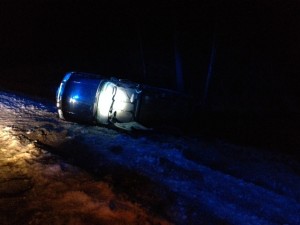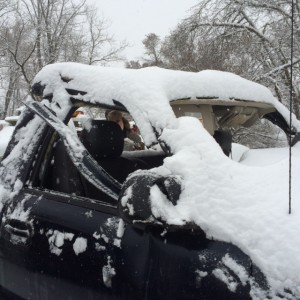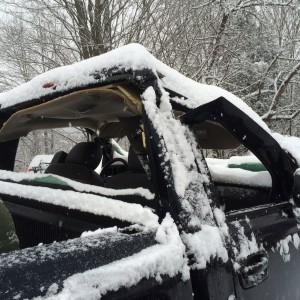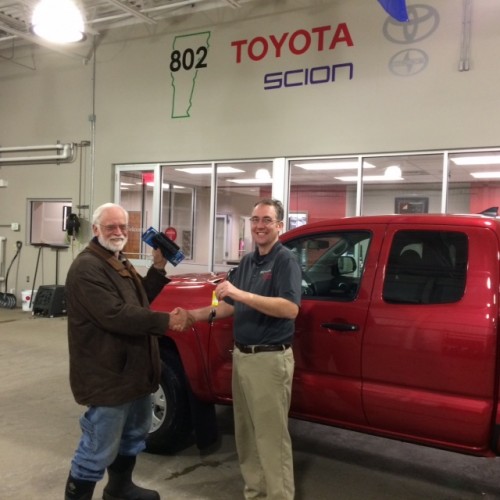My blog this week was to be an essay on the similarities between my memoir of my two years teaching English and living in Kazakhstan as an older, married Peace Corps volunteer (At Home on the Kazakh Steppe) and Kathy Pooler’s memoir of living in and escaping from domestic violence, twice (Ever Faithful to His Lead).
I loved that it sounds incongruous at first glance. But I would have described a few of the specific commonalities that Kathy and I shared, such as:
- In both of our stories, over and over, we gritted our teeth and forged ahead, silently. For as the
scripture sayethscript is written,
Nice young ladies don’t complain.
- Neither of us was willing to risk the relationship we had by speaking our truth, out loud.
Good girls play nice. They go along.
The blog, though, wasn’t coming together. Instead, it rambled, it bogged down, or it was confusing. Still, I forged ahead. I had a deadline to meet. Stiff upper lip.
I had planned to intersperse my post with aphorisms or adages I’d grown up with, those messages we got through the 1950s and into the 1960s, whether directly or indirectly, that served to keep us quiet, uncomplaining, like the two above and this one:
Ignore it and it’ll go away.
With this last one I stopped, realizing I was in the midst of making that same mistake again.
What I was ignoring — a trauma I’d experienced only a few days before — wasn’t going away. And it was affecting my ability to concentrate or attend to what was in front of me, this blog being only the most obvious.
The real story for today had to be what was going on for me tonight, as I write this blog on December 8.
Wednesday night, December 3, on our way home from a chorus rehearsal of The Messiah, Woody and I had an accident.
We skidded on black ice and totaled our pickup truck. The GMC Sierra rolled over a few times, slid down an embankment, and landed on the driver’s side door.
I had initially been unaware Woody had lost control. Engrossed in my cell phone as we sped up the highway, my first indication something was amiss was the sudden jarring motion as the car skidded. I saw the road swerve before me as in one of those slow motion scenes in earthquake documentaries. I fully expected him to bring the truck back under control.
“Don’t overcorrect,” I told him. Twice. I thought it would help.
Then I watched out my side window as a reflector along the shoulder came racing toward me. I knew we were going over the embankment just beyond it. And I had no idea how steep it was, or how long the fall would last, or what would finally bring the truck to a halt.
I believed I could be meeting my death. But what I remember most was that in that moment I felt peaceful. It was out of my hands. I had given up trying to fix it; I’d let go of the outcome. There was nothing I could do and I knew it. I was certainly in the moment.
But the moment didn’t last long. We rolled over at least twice; I heard glass break; the truck bounced a few times. Then there was silence.
“Are you OK?” I asked Woody. “Yes. Are you?” he replied. I took a quick assessment.
The truck had landed on its left side, on Woody’s driver’s side door. Our seat belts held us securely in our seats, which meant I was suspended a few feet above Woody. Both side windows were blown out and shards of glass plastered my face and neck. Woody also lay on his side, his left arm through the former window and onto the snow beneath him.
Miraculously, neither of us had any injuries. But we were trapped in the cab and it would take nearly an hour for the rescue squad to cut us out and help us walk away.
Neither of us panicked. I called 911 from the cell phone that I still clutched in my hand.
“We’ve been in an accident,” I reported to the dispatcher, “Rt 91 Northbound.” I gave her our names and told her neither of us was injured, just unable to get out. She wanted our mile marker. Woody told me, “north of the Barnet exit.” She still wanted the mile marker.
I had seen the legs of people walking around above us while I was on the phone. I’ve got this covered, I’d wanted to tell them. Really; there’s no need to stay. I asked them for the mile marker and someone knew it, so I passed it on to the dispatcher. Then I noticed my phone was low on battery so we hung up.
Shouts of “how are you?” came from the group above us. “Fine,” I told them. “We just need to get out.”
“I wouldn’t move,” someone answered. “The truck is on a tilt, on a hill. It could continue to roll if we push it.”
I hadn’t even thought of that. But it explained the gusts of cold air that Woody was getting from beneath the car.
“Woody’s shaking. He’s lying in the snow and he’s cold. I want to get him out.” I took off my hat and handed it to him. He’d lost his in the roll.
Someone handed us a parka through my open window and I tried to get it over him, but my orientation was off. I’d think I was pushing it up onto his shoulder but I wasn’t even close; it would slide off. Eventually, we figured it out.
I was glad the people were there. Even if none of them had a phone charger I could use.

The state trooper was the first to arrive, delayed by the icy roads, he said. He bent low and peered into the cab through my husband’s missing window.
“Put your car in park and give me the keys,” he said to Woody after asking us about injuries.
The rescue squad came next; they’d all been at home, warm and comfortable before we slid off the road. The EMS crew was the final set to join; they wanted to know our medical history. Really. While I dangled midair in my seat belt, the only medical condition I could think of concerned my overactive bladder.
After much analysis and discussion, the rescue crew cut the roof off the cab. This involved covering us with blankets so the glass from the front and rear windows that they needed to shatter first would not get in our faces. With the roof laid out on the snow, they guided us as we walked over it and up to the EMS van.
Our vitals were taken. My blood pressure was twenty points higher than normal, Woody’s was forty. The crew said they weren’t concerned by that, but I noticed they took Woody’s again after a few minutes; it had come down 20 points.
We chose not to go to the hospital and signed the necessary papers. Then, we waited in the trooper’s car for the wrecker that had to come.
Our entourage had left and I watched from the front passenger seat as the trooper combed the hillside collecting the bags of stones we had had in the truck for winter ballast against the weight of the snow plow (at home in the barn on this night).
After the trooper drove us home, Woody and I spent considerable time making sure we found all the remaining shards of glass. Really. My right ear was packed with glass but I had only a small puncture wound on my right pinky finger. Woody had his single puncture wound on his left ring finger. We felt immeasurably grateful and slept very well that night.
For the next day and a half I believed that we’d escaped unscathed. I posted to one of my closed FB groups, We Love Memoirs, and got all the necessary support and sympathy I expected and wanted. We sang in the first concert of The Messiah that Friday night and talked with the folks from the two cars who had stopped. It had been traumatic for them as well.

Saturday morning we drove into town to see the truck and collect those odds and ends that we wanted to hang onto.

That afternoon I had a massage, then went food shopping, planning to get home in time to have a light supper and dress for the second of the three concerts that weekend. But as I shopped I got angrier and angrier. When I overheard a conversation between the two store employees and a policeman about a shopper, I complained.
“That’s not a topic to be discussing where it can be overheard by a customer,” I told them in anger. They shrugged, but they stopped talking (though one of the managers rolled her eyes and mumbled under her breath at me).
As I drove home I realized that the effects of the trauma I’d had just a few days before were beginning to show.
“I’m staying home,” I told Woody when I got home. “I can’t go anywhere tonight.” I just wanted to stop moving.
“I’m going,” he responded in an equally defiant tone. I ignored him. Eventually, as the reality sunk in, he admitted he’d also considered staying home. He just didn’t want to.
I took a bubble bath; he watched Netflix. Sunday we felt well enough, even eager, to sing in the final concert, an afternoon event. I was glad we did.
On Monday night, telling my hospice choir friends about it, I began to cry. I had no idea I was still so raw.
When I didn’t think about it, I’d carry on as though nothing was amiss. When I thought about it, I’d break down.
When I didn’t think about it, I’d snap at Woody and hear Woody snap back at me. When I thought about it, I’d cry.
I have a hard time concentrating. My mind is scattered. I can’t settle into a routine. Writing this blog, as you now know, has been difficult.
Cognitively, I know that I am grateful we were not seriously injured. But I don’t FEEL grateful. I feel outrage, fury. I want to hit something. I want to yell, to scream really. But I do neither. Instead, I write. I posted tonight to another closed FB group I’m on and am eager to hear from them. I talk on the phone to friends. I walk in the woods (on snow shoes). I take bubble baths.
The anger comes in spurts. Unexpected spurts. And as quickly as it surfaces, it evaporates.
I’m drinking lots of tea. I’m doing all the things I should be doing. I’m also playing computer solitaire like a junkie.
Woody and I stopped talking about it. What more can we say?
So I write here, one more time, to see what comes out. I know I need to be patient with myself. And as I write this, I’m reminded of another saying, this one a bit newer in my life:
Don’t just do something; sit there.
And that is exactly what I will do.
Nothing.
I will allow myself time to wind my way through the many layers that have formed.
And, later, after we know what the insurance company will allow, I will help Woody find himself a new truck.
December 16 — Epilogue
Decades ago, I had a Time Magazine photo hanging on my college dorm room wall:
Time changes the needs of people.
It had a picture of an hour glass and a long, winding road in the background. I haven’t thought of it in years. With time, I feel myself back in my own skin once again. But I’m different too.
From the policeman at the food store talking out of turn, to my mother last week saying something I thought insensitive, to a woman in my recent writer’s group this week interrupting someone I wanted to hear, my reactions are different than they would have been just a few weeks ago. I’m speaking out, standing up, letting my reality be known.
Whether its because I realize my time on this earth really is limited (and precious) or something else, I don’t even try to know.
What I do know is that I felt peaceful at the moment I thought I was facing my death. And that is a gift.
As is our ability to replace our Sierra with a shiny new toy.

How do you nurture yourself?
Pat
In 2000, my husband and I had a car accident and was lucky to be alive. It changed the both of us. Our whole outlook on life has changed since then. We appreciate each other more but I also use that for my decision making. When I don’t want to do something, I ask myself – If the one I loved died tomorrow, would I have regrets? If the answer is no, I don’t do it. If the answer is yes, I grin and bear it while I do it. Many of the little things that used to irritate me don’t any more because in the grand scheme of things – who really cares? I fight the fights that are important to me even if I feel it is a losing battle because it feels right to me. My sense of what is important has changed. Now we do a lot of traveling and meeting new friends. Life is too short so I need to get busy enjoying it! I’m so glad y’all are okay! Give yourself time for everything to make sense again.
Janet Givens
Hi Pat. Yes, time. That is the great healer. Thanks for stopping and adding your thoughts. Btw, I’m going to send your website address to my colleagues in Kazakhstan; you can offer them an interesting new perspective on teaching.
Susan Joyce
I take walks along the beach and sing to the top of my lungs. A great release allowing fresh thoughts and ideas.
Why do you think you feel angry?
Janet Givens
Hi Susan, I thought of you when I read the news recently of the contingent going to Uraguay. I need to learn more of your adopted land. In my mind I lump it in with Paraguay, something akin to American lumping all the Stans together.
As for the why, I can only say that I’m more focused on feeling the anger, on experiencing it, “honoring” it if you will. If I start to analyze it, I find myself going into my head and then I don’t feel it so much anymore. It really doesn’t matter to me so much, but honoring it, getting it out does. And, as I write these words, I have to say I’m not feeling it at the moment. As I wrote below, sometimes one trauma can raise old traumas never fully healed, so that’s a possibility.
Joan Rough
Oh, Janet, your post took my breath away. I am so glad you and Woody were not physically injured. Trauma like that is not easy to just set aside to go away on its own. It will be with you for a while. Speaking and writing about it is the best medicine for now. Do not ignore it.
I pray your holidays will be filled with healing and peace.
Janet Givens
Yes Joan, that’s another gift I have, that I can write about it and I have people in my life who (seem to) never tire of hearing the tale. Telling our stories of trauma, at all levels, is healing. That and hot baths (though someone on facebook did warn that too hot baths seem to be related to stroke, particularly after a physical trauma, so they are no longer so hot). And I also know that each tragedy or loss reignites those that may still lie unresolved, so I’ve got much to chew on since this happened. Thanks for your support.
Kathleen Pooler
Oh Janet, thank God you and Woody survived such a frightening ordeal. It’s amazing how near-death experiences wake us up to what really matters. When I was diagnosed with a life-threatening disease in 1996, my life came to a complete halt but in that halt, I learned a very important lesson–life is short and don’t sweat the small stuff. Enjoy the moments and yes. don’t just do something , sit there.” The rawness of your writing brings me right there with you and makes me even more grateful you are around to pick out that bright red truck! BTW, thank you for your thoughts about the similarities of our stories. At the time, they were ,of course, our life crises. But isn’t it grand to be able to look back and realize they were a detour that led to who we are today. Alive and well and very, very grateful. Sending healing hugs your way.
Janet Givens
Hi Kathy I love that image of life coming to a halt, and in that halt seeing things more clearly. I shall accept your hugs and return them in full.
Marian Beaman
Judging from the previous comments, your readers can relate to the accident you’ve recently experienced. I know I can. Writing/illustrating your feelings will help you continue to process the trauma. I experienced something similar back in college when the car I was a passenger in flipped over on a snowy road – all in slow motion as you describe. No one wore seat-belts, so 6 bodies flew all over the place. I ended up with a bloody knee but did go to the hospital to get checked out.
Then, over ten years ago I was rear-ended by a fast moving vehicle which totaled my sturdy car, an Infiniti. Half of the car looked like an accordion. In the moment of crisis, common sense left me, and I handed a complete stranger my wallet so I could us his cellphone. Dumb – though he did hand it back. Like you, thoughts and actions registered as non sequitur.
After such dramatic events, we have to believe we live in an altered state at least for awhile, probably suffering post-traumatic stress syndrome, which may explain your anger. I like your recipe for healing, don’t just do something; sit there.
I hope it’s in front of a blazing fire with some hot chocolate. Blessings and healing to you and your family this Christmas season.
Janet Givens
Hi Marian, Well, I can report that we had our woodstove moved upstairs this summer and it’s now ablaze about two feet from me here on the DR table. I find I prefer to write downstairs lately, not upstairs in my little corner of the world. Alas, the hot chocolate is tea, but there is more honey in it than usual. One more concession to where I am at the moment. Thanks for writing. As always.
KM Huber
Glad you and Woody are okay. That was quite an ordeal and it sounds life-changing. I think that is what transformation does. We are never the same. I am going through something similar as I continue to heal from an illness that has dogged my life for nearly four decades. I hear and understand your anger.
For me, adjusting to a new life that is one of health rather than chronic illness has been incredibly difficult. Letting go of life as I knew it–one fraught with illness–has meant changing, completely, how I live including my routine. Only now, am I stepping into my “new shoes,” as it were. A recent watershed moment revealed that transformation requires letting go of what one was for what one is now.
This post is so beautifully and achingly written, Janet. Thank you.
Karen
Janet Givens
Thank you, Karen. And welcome. Your words are always a balm to me. I’ve been following your story through your blog posts and, with your comment here, I’m really struck by how easy it is for me to fall into that judgment trap. ( e.g., New found health after years of illess is Good. Traumatic auto accident is Bad.) And once again I’m reminded how limiting these judgments can be. Both situations involve change, a change in a sense of who we are, our identity of you will. And both require time and gentleness. I send you a warm virtual bear hug over the miles.